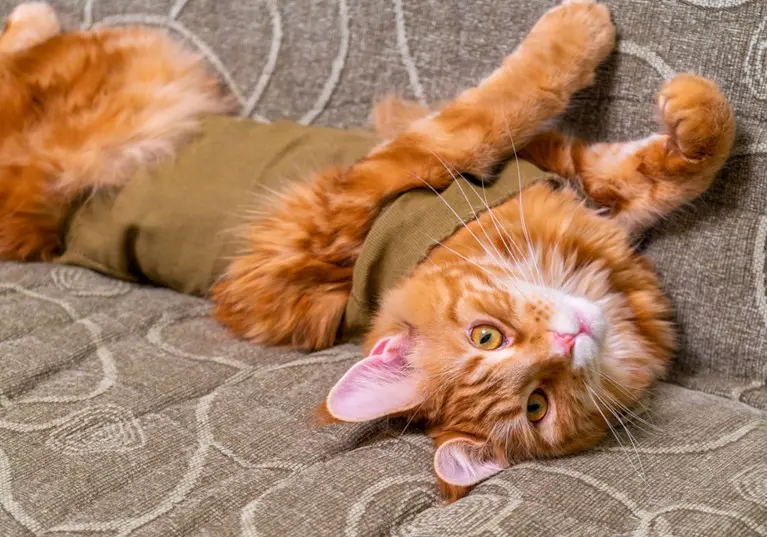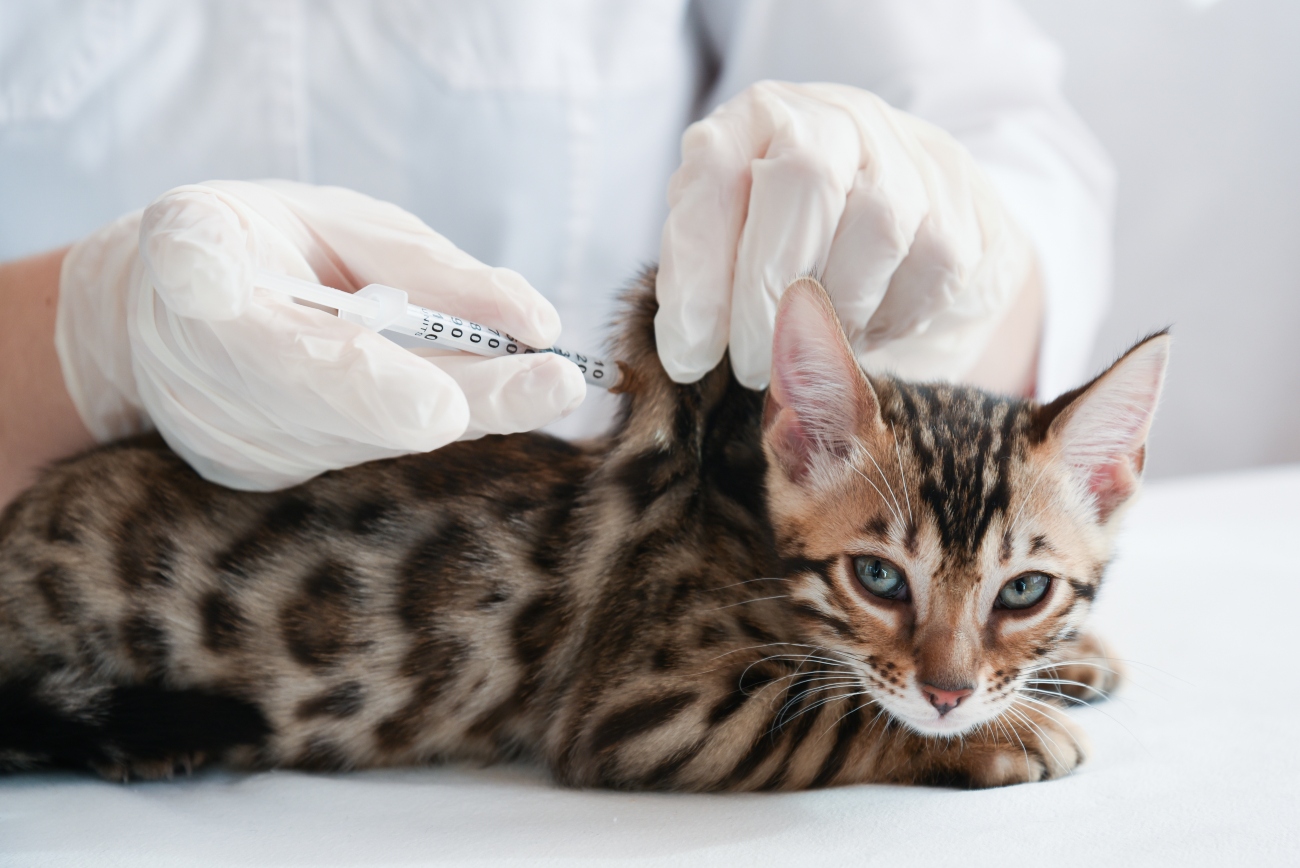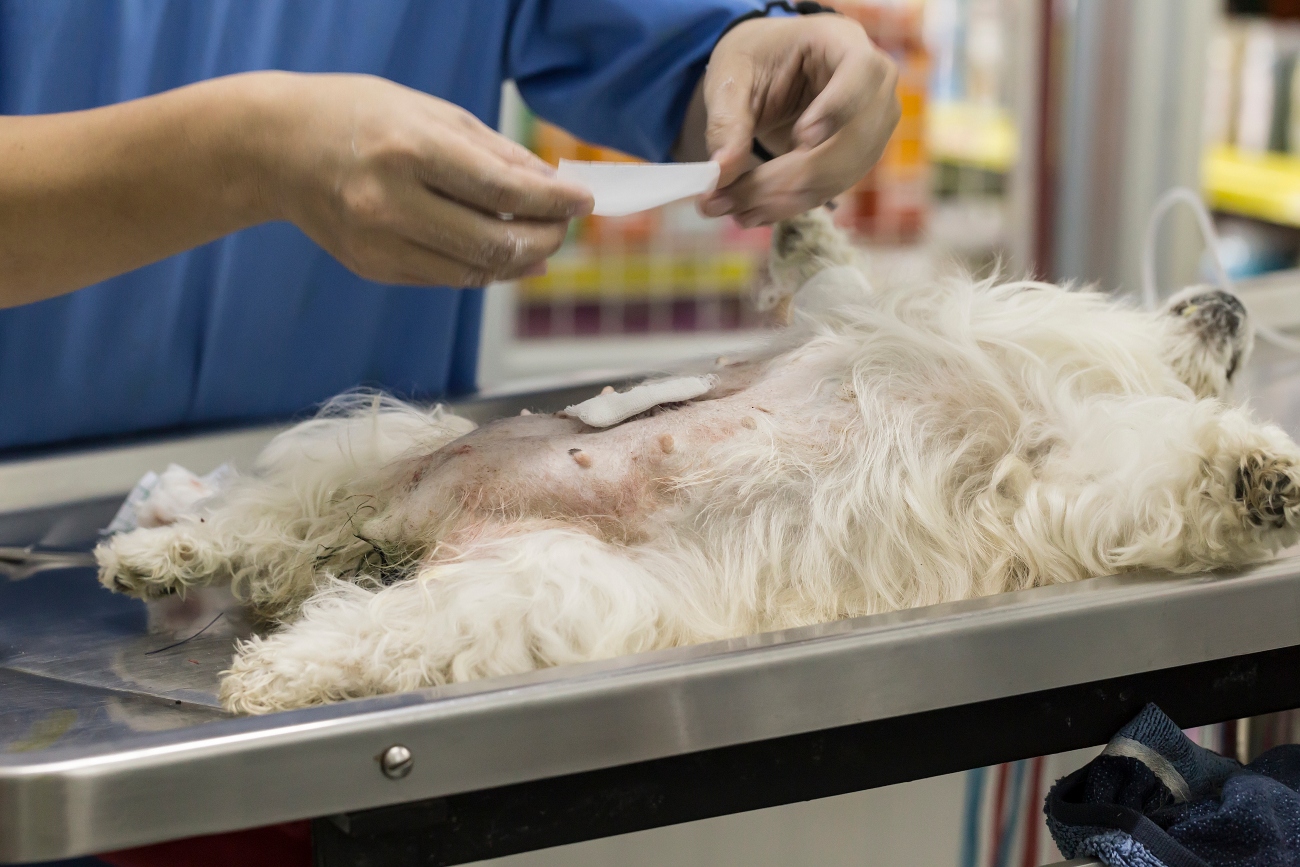Does pet insurance cover spaying?
23rd September, 2022

Spaying your animal has many advantages, but what does the procedure involve, and is it covered by pet insurance? Learn more below.
Bringing home your bundle of fur is exciting for everyone, and you want to make them feel like a welcome member of the family. Preparing their sleeping arrangements and buying the right toys is important, but so is looking out for their health.
Spaying your animal is an excellent way to boost their well-being and it comes with a range of benefits for your furry family member. Can you get a dog spayed with pet insurance? How about your cat?
Read on to learn about why spaying your pet is a good idea and whether you can get pet insurance that covers spaying.
What is spaying for a cat or dog?
The term spaying refers to the process female cats and dogs undergo to stop them from getting pregnant. The procedure removes their ovaries and uterus and takes away the risk of your pet having unwanted litters.
Your vet will give your animal general anaesthetic for the operation and then pain medication to help them during the recovery period.
Vets can also spay rabbits to stop them from breeding and fighting, but it’s most common in cats and dogs.
Is spaying different to neutering?
Spaying is what we call the procedure for female pets. Males can have something similar called castration, which removes their testicles. The collective term for both surgeries is neutering.
Does pet insurance cover spaying?
Although it may come as a surprise to many pet parents, spaying isn’t covered by insurance policies. Does pet insurance cover neutering in the UK for males? No, it doesn’t cover castration either.
The procedures are classed as preventative measures and are an expense that all pet owners should include in their budget.
So, what does pet insurance cover in the UK? These policies are designed to protect your animal in case of accident or illness.
They can also cover you in third-party liability cases if your pet injures someone else or damages their property. You may be able to get compensation if your animal gets lost or stolen.
Does pet insurance cover cremation?
Not always, but with a lifetime policy from Purely Pets, you can get up to £100 of the cremation cost if you’ve had a plan with us for at least 36 months.
Are there policies that cover spaying in emergencies?
There are instances when you may be able to claim in an emergency situation, although there’s no specific pet insurance that covers neutering as such.
At Purely Pets, we may be able to provide full or partial payment if your animal needs urgent care and spaying is required to treat the critical condition. Please check your policy wording for guidance.
What does pet insurance not cover in the UK?

When looking to welcome a loyal feline or canine companion into your family home, you need to make sure you budget for all the costs involved. While finding the right pet insurance policy for your animal is essential, there are other care routines and treatment you need to consider.
Many pet owners believe pet insurance will cover all their vet visits, but this isn’t the case. As mentioned above, spaying isn’t covered by policies. But does pet insurance cover vaccinations and other animal care?
There are other non-emergency treatments that you may not be able to get insurance cover for either, including:
- Vaccinations
- Flea, tick, and worm treatments
- Grooming – such as nail clipping and fur trimming
- Microchipping
Although these vet visits don’t come under your insurance policy, you may be able to get a pet health plan with your veterinary practice. This includes the non-emergency care and allows you to spread the cost evenly over a year.
When can you get a pet spayed?
Before booking your pet’s operation, discuss the best time for surgery with your vet.
If you have an older female pet and are hoping to get her spayed, there’s no upper age limit. However, the advantages related to the operation decrease as your pet ages. There is a dedicated National Spay Day celebrated on the 28th of February, check out our blog post to find out more.
Why should you get your cat or dog spayed?
There are a few reasons why owners get their pets spayed:
- To prevent unplanned pregnancies and litters.
- To stop them from straying and roaming, especially when in season and searching for a mate.
- To lower their risk of certain health concerns, like mammary cancer.
- To reduce aggression and other problematic behaviour.
What are the pros and cons of spaying your animal?
For professional advice about getting your pet spayed, speak to your vet. The procedure is beneficial to most animals, but it’s not always the right choice.
To help you weigh the pros and cons, we compare them in the table below.
| Advantages of spaying your pet | Disadvantages of spaying your pet |
| When pets come into season, they’re more prone to straying to find a mate, but they run the risk of getting lost or injured on a busy road. Spaying reduces the chances of them running away. | May cause a higher chance of your pet developing urinary incontinence. |
| Getting pregnant and giving birth to a litter pose risks and can cause complications for your pet’s health. Spaying removes the chance of your animal having a litter. |
If you spay your pet to young, it could risk affecting their bone growth, this is why it’s important to discuss the best age to spay your pet with your vet. |
| Seeing your four-legged friend in pain due to illness is extremely sad. Spaying your dog or cat can reduce their risk of developing health conditions like womb infections and certain cancers. | Occasionally, the operation alters your animal’s metabolic system and causes weight gain, which, in turn, leads to other health issues. |
| If your pet has an unplanned pregnancy and litter or suddenly falls ill, it can be costly to get the healthcare they need. Spaying lowers the chance of your animal needing emergency treatment, saving you money as a result. |
How much does spaying cost?
As pet insurance policies that specifically cover neutering may not exist, you need to pay for the procedure yourself. The cost can play a major part in your decision to spay your animal or not, but there’s no one price that fits every animal. Your pet’s breed, size, and where you live all need to be considered.
According to Cat’s Protection, the procedure should cost around £50-£100 for a cat. How much does it cost to spay a dog? Canines cost quite a bit more at £130-£365, says the Blue Cross.
Can I get help with spaying costs?
What happens if you’re sure you want to spay your cat or dog but can’t afford the procedure? In certain cases, you might be able to get financial support from animal charities.
Many of these organisations run neutering campaigns across the UK where you can get your animal spayed for free, £5, or £10. They sometimes also offer financial help for other treatments like microchipping.
Does spaying reduce insurance premiums?
You may be able to reduce the cost of pet insurance by spaying your pet as this can be a rating factor with some insurance companies when calculating your premium. They’re less likely to roam and get into an accident or develop health concerns that can appear when you don’t operate, in turn this may reduce the likeliness of needing to claim which can cause an increase to premiums. This can vary between companies, so if you have any questions about your specific insurance, please speak to your insurance provider.
There are other ways to potentially reduce the likeliness of needing to claim which may keep your premiums lower, like keeping your animal’s vaccines up to date, giving them a balanced diet and making sure they get enough exercise.
Before committing to an insurance policy, check whether these measures will influence the quote.
How do vets spay your animal?
Once you decide that spaying is best for your beloved pet, you’ll need to discuss with your vet what the surgery involves and how you can help your animal before and after the operation. Here’s a brief look at what to expect.
How to help your pet prepare for the operation
Your vet will likely ask you to avoid feeding your animal after 10pm the night before surgery. They can have fresh water nearby, but you also need to stop them from drinking a few hours before they enter the operating theatre.
If they eat or drink the day of the procedure, they risk inhaling solids and liquid into their lungs while under anaesthetic, which can cause choking and be life-threatening.
What to expect on the day of the surgery
- Your vet will give your cat or dog painkillers and general anaesthetic, so they don’t feel anything during the operation.
- Next, they’ll clip your pet’s fur in the area where they need to make the incision.
- The vet will remove the ovaries and womb through the tummy.
- Finally, your pet will get stitches and be moved to a recovery room to be monitored.
- Soon, the veterinary practice will contact you to tell you how your animal is doing and when you can collect them, which is usually a few hours after the surgery.
- When you pick them up, your vet will tell you how long they need to rest and give you some tips to help them recover at home, which we’ll tell you more about below.
Your pet may be able to have keyhole surgery as an alternative. Your vet will make small holes in their abdomen and use a tiny camera and surgical instruments to take out the ovaries and womb. This procedure costs more, but has a few advantages over open surgery:
- Less painful after the operation.
- Reduced risk of complications.
- Quicker recovery and can get back to exercising sooner.
Helping your pet recover at home

Once your pet gets home, you’ll notice they seem a bit lethargic, but this is completely normal after being under general anaesthetic. It can take around 24 hours for them to act like their usual self again.
Make sure you follow your vet’s advice to help your animal recover quickly and as pain-free as possible. You should expect to:
- Administer any prescribed medication.
- Stop them from bounding about to help the wound heal better and avoid complications.
- Get a bodysuit or protective cone to stop your animal from licking the wound.
- Take them back to the vet for a post-op check-up and to get stitches taken out.
Does pet insurance cover check-ups after spaying?
Your insurance policy doesn’t cover the procedure nor the check-ups after to see how they’re recovering and to get stitches out. However, if you get a spaying package from your vet, it might include the check-ups, but you’ll need to check this with them beforehand.
Is there a difference between spaying a cat and a dog?
The spaying operation is similar for both animals, but as dogs are larger, their surgery usually requires more stitching beneath the skin. It may take your canine longer than your cat to recover from the procedure.
Is my pet still fertile after being spayed?
As soon as your vet spays your cat or dog, they lose the ability to get pregnant, meaning they’re no longer fertile. However if you choose not to spay your pet and they happen to become pregnant, read our blog on how long is a dog pregnant for some helpful tips.
Why insure your four-legged friend with Purely Pets?
Cats and dogs make loving and loyal companions that are always there when you need them most. Your pet deserves the best in life, and you can help by protecting them with a lifetime pet insurance policy from Purely Pets.
While spaying your animal is part of being a responsible pet parent, so is being prepared for unexpected health expenses. A comprehensive insurance plan means you can get the help they need in an emergency.
With our choice of lifetime pet insurance policies, you can find the right plan for your needs and budget for fur babies as young as 8 weeks old. There’s no upper age limit either, so your senior four-legged family member can take advantage of lifelong protection, too.
When you choose Purely Pets to insure your animal, you enjoy many benefits, including:
- 24/7 vet video consultations
- Up to £15,000 lifetime cover
- Online policy management and claims
- Direct payment to vet
If you’re looking for pet cover for your beloved cat or dog, get in touch with the Purely Pets team today.
Helpful Pages
Recent Posts
Pet Insurance Quote
- 98% claims paid *
- Claims paid directly to vets
- 24/7 vet video consultations
- Interest free monthly payments




